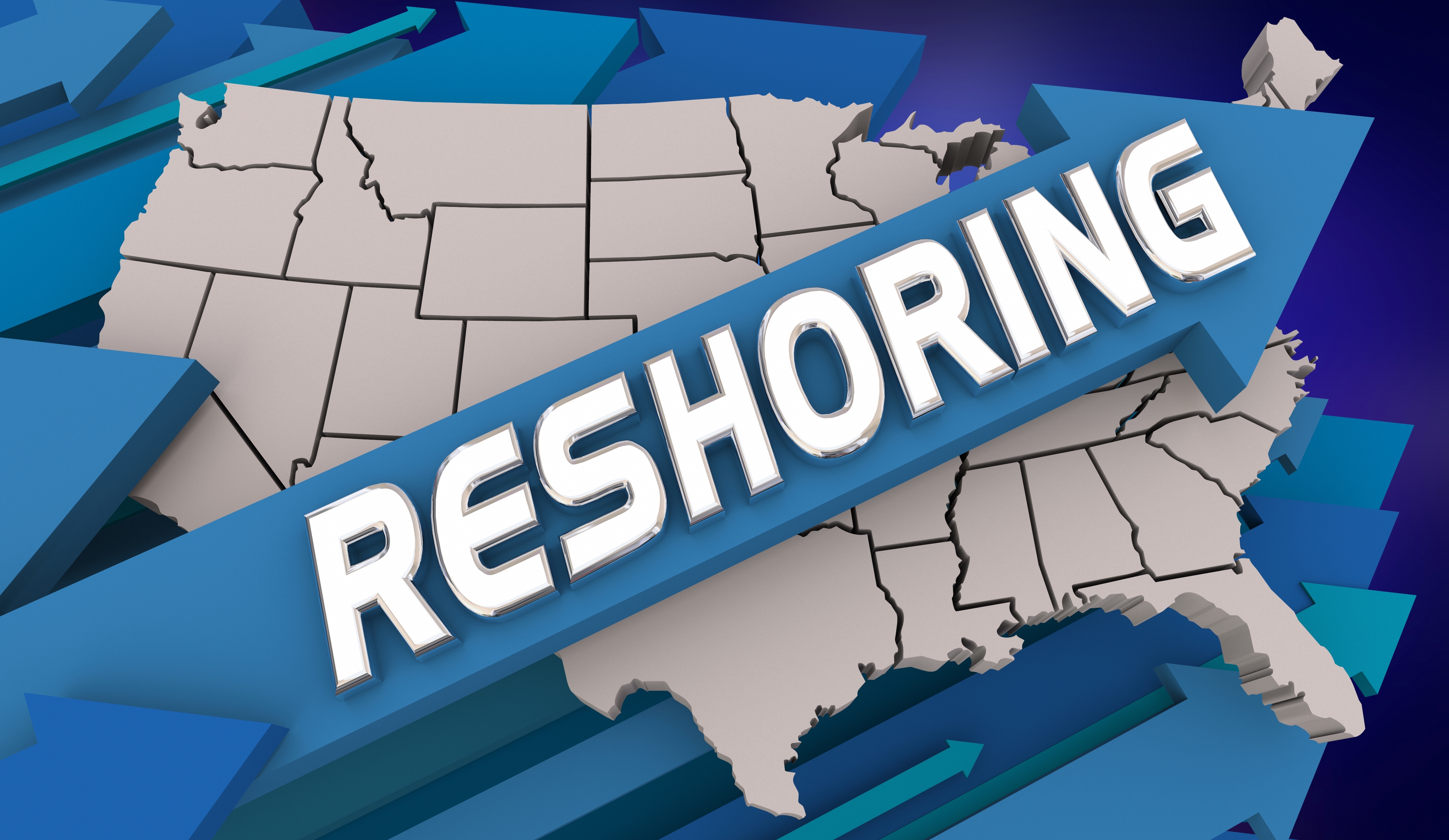There’s a lot of noise right now in the customer experience (CX) community about the Keep Call Centers in America Act – S.2495. Senators Ruben Gallego (D-AZ) and Jim Justice (R-WV) want to penalize companies that offshore call center jobs and force brands to provide a live, U.S.-based customer service representative. Sounds simple enough, right? But dig in, and the details get messy fast.
The Legislation at a Glance
Here’s what the Keep Call Centers in America Act (S.2495) is really saying:
- 120-day warning: Companies have to tell the Department of Labor four months before moving jobs offshore—because nothing screams “red tape” like a mandatory countdown clock.
- Public hit list: The DOL will post a list of companies that offshore, and you stay on it for five years. It’s basically a “wall of shame.”
- Federal funding freeze: If you’re on that list, say goodbye to federal grants and guaranteed loans.
- AI blame game: The DOL is supposed to track jobs “lost to AI.” How they plan to do that is anyone’s guess.
- Caller disclosures: Nearshore/offshore agents must tell customers where they are, right away.
- AI disclosures: If AI touches the call, that has to be revealed immediately too.
Sounds great in a press release. But in practice? It’s political theater. Enforcement will be a nightmare, costs will explode, and the very people this bill claims to protect—the consumer—are the ones who’ll get burned.
BPOs Need to Do Better!
Let me preface by saying that offshore/nearshore call center/BPO companies are on warning. Consumer sentiment is generally negative toward non U.S.-based call center agents, because many BPOs are failing to provide high-quality support and customers are frustrated. If you ask the average consumer, they prefer speaking to a U.S. based customer service representative.
Offshoring and nearshoring have matured over the past two decades, and many BPOs consistently provide world class service, seamless and expeditious issue resolution with quality and highly skilled support agents. Still, too many BPOs are cutting corners, resulting in poorly trained agents with poor communication skills and other issues such as high turnover and untrained leadership.
BPOs of all sizes are guilty of contributing to a misperception that all offshoring is bad and only U.S. based agents can effectively resolve customer issues. We all know that this is a pure fallacy. Brands report to us that nearshore and offshore performance is on par if not better than onshore. I say, we should embrace champion vs. challenger competition and let the market dictate who wins out.
While lower costs are a major factor, the often-overlooked benefit of nearshoring and offshoring is the availability of highly skilled talent. The call center industry in most nearshore and offshore countries, attracts highly skilled individuals, many with college degrees, aspiring to a career in business process outsourcing (BPO).
In most countries, it is not just a job – it is a long-term aspiration, and an opportunity to uplift the individual and their family members. In 2024, we conducted a comprehensive global market research study, interviewing thousands of call center agents in 25 countries which provides incredible insight on the “voice of the agent” in nearshore/offshore countries and the U.S.
There is a distinct difference in how the BPO industry is perceived globally and how much the call center job is valued. BPO industry is thriving globally particularly in countries with a high unemployment rate, enabling generational improvements in quality of life and economic standing.
My Thoughts on the Proposed Legislation
When the United States Call Center Worker and Consumer Protection Act of 2021 (H.R. 4603) was introduced[NJ1] , I wasn’t too concerned. I’m still not concerned about the 2025 version. Why? Because actually enforcing this thing would be next to impossible.
First, you can bet there will be a tidal wave of lobbying from U.S. companies that rely on nearshore and offshore support. And frankly, those companies don’t have much choice. If they were forced to repatriate call centers, customer support costs would skyrocket—and those costs would be passed straight to the consumer. Or worse, some brands would slash service altogether because it’s simply too expensive to run centers in the U.S. Can you imagine the backlash when customers can’t even get someone on the line? In trying to “protect” consumers, this bill would end up hurting them.
The ripple effects wouldn’t stop there. The Philippines alone has 1.8 million call center workers, 70% of them serving U.S. clients. BPO makes up 9% of the country’s GDP. India, Latin America, Africa—millions of jobs worldwide depend on this industry. For many families, a call center role isn’t just a paycheck, it’s the pathway to stability and upward mobility. Pull all that work back to the U.S. overnight and you’re not just destabilizing global economies—you’re creating a catastrophe that will boomerang right back here.
And let’s talk costs. A U.S. call center worker earns about $18/hour, but once you add the “all-in” expenses such as benefits, management, training, attrition, insurance, technology, compliance and dozens of other line item costs, you’re looking at $30 to $40 per hour to operate onshore call centers. Offshore BPOs average closer to $12-$14 all-in, and nearshore around $15-$18. That’s a massive gap. Meanwhile, onshore centers already struggle with staffing, turnover, and burnout. If millions of jobs came back to the U.S., who’s going to fill them? The Act doesn’t even attempt to answer that question.
Then there’s the AI piece. The Department of Labor is somehow supposed to track jobs lost “because of AI.” How exactly? Politicians love to throw this kind of language around, but they have no clue how to implement it. Maybe they’ll spend billions on AI tools to track job losses due to AI, only to realize their AI doesn’t work—and then spend billions more to fix it. Round and round we go.
At the end of the day, this is the kind of vague mandate that sounds good in a press release but collapses in the real world of customer service.
Summary
I get it. Communities in the U.S. have been hurting for decades because of offshoring and automation. That pain is real, and it’s not something we take lightly. CustomerServ is pro outsourcing on all shores and we've created tens of thousands of new call center jobs in the U.S. over the past two decades. Politicians are unfairly targeting the call center industry because we aren't the only ones offshoring or nearshoring. Outsourcing has reshaped entire industries such as manufacturing, IT, healthcare—you name it. So why is Washington suddenly laser-focused on call centers? Perhaps because we are an easy target.
And let’s not forget the flip side. In the Philippines, India, Africa, throughout LATAM, the EU and across Asia, millions of people depend on call center jobs to build better lives. For them, this isn’t just a paycheck. It’s career growth, it’s dignity, it’s putting food on the table and kids through school. Pull the plug on that, and you’re talking about a global ripple effect that eventually comes back to hurt us here too.
If politicians really want to protect consumers, here’s a radical idea: talk to the people who actually understand customer service. Talk to the agents, the brands, the BPO leaders. Because a “shame list” and a bunch of unenforceable rules aren’t going to move the needle.
The truth is, we’ve got to step up our game. All of us—onshore, nearshore, offshore. Too many BPOs are still cutting corners, and that gives lawmakers ammo. We need to prove that world-class customer experience doesn’t depend on geography, it depends on quality.
So instead of waiting for Washington to decide our fate, let’s own the narrative. Let’s show, through consistent performance and higher standards, that this industry is part of the solution—not the problem.







